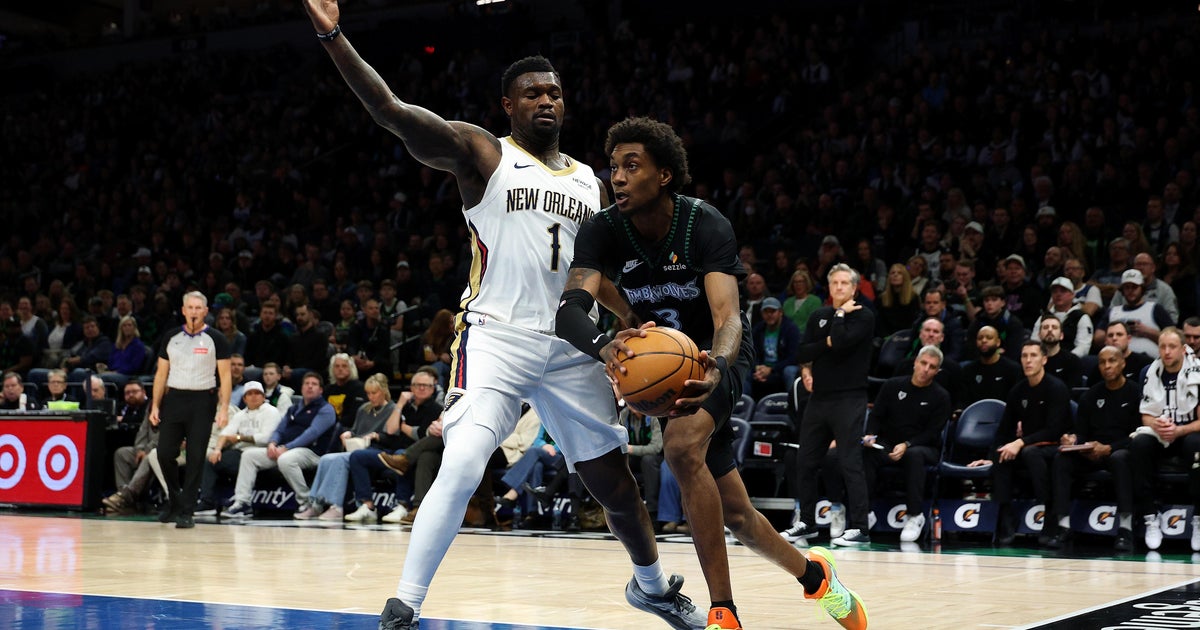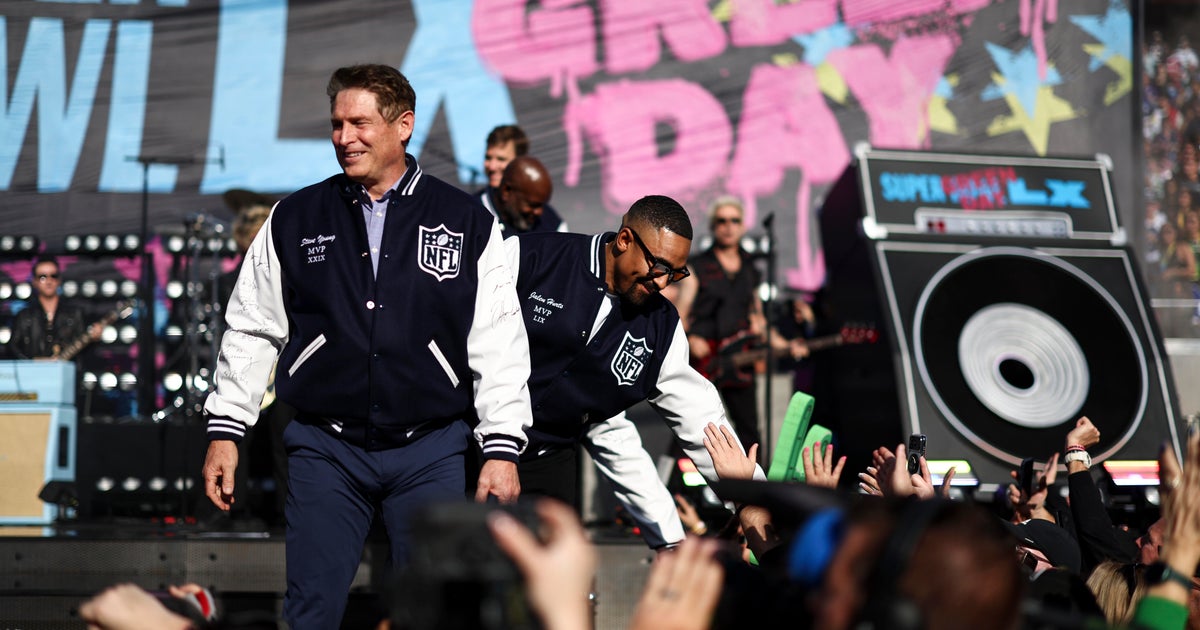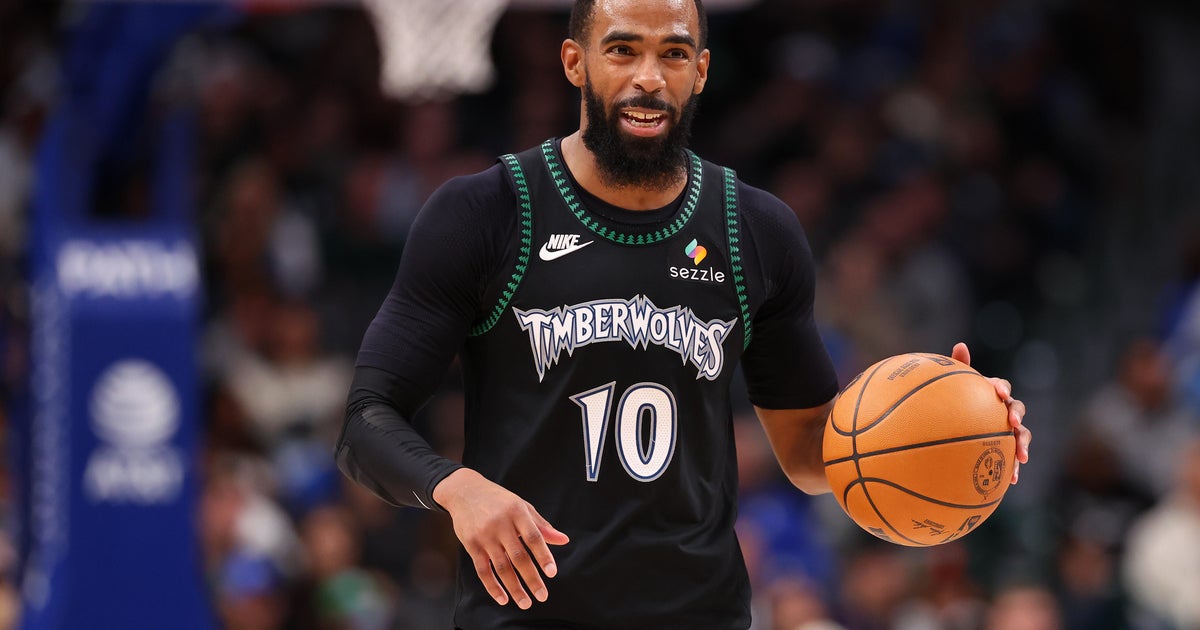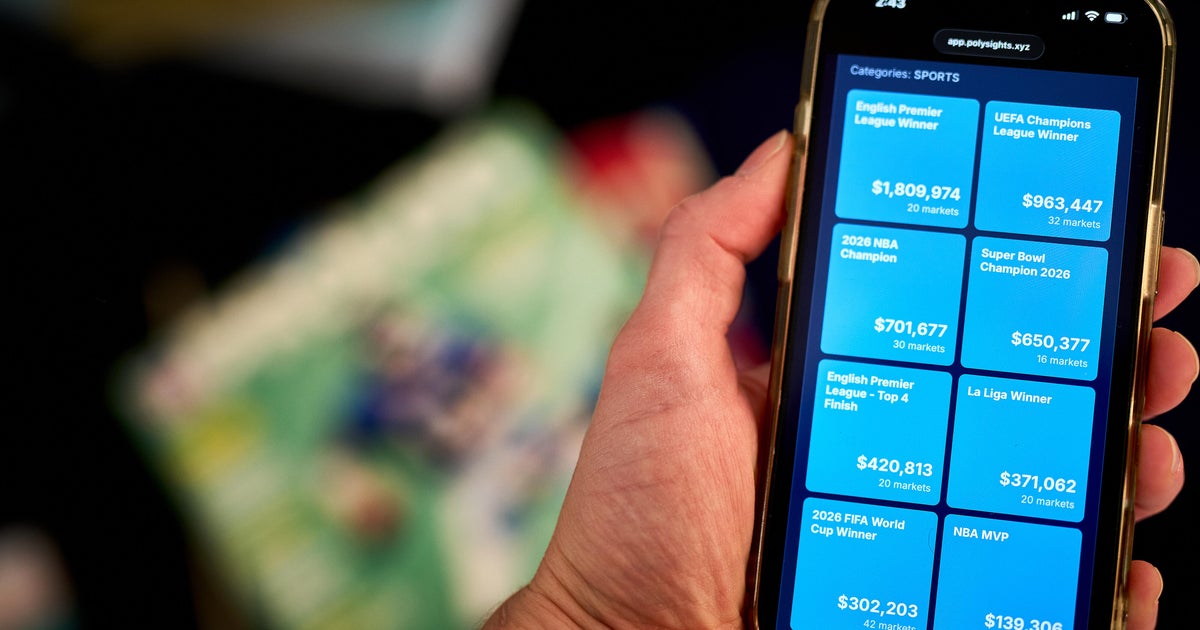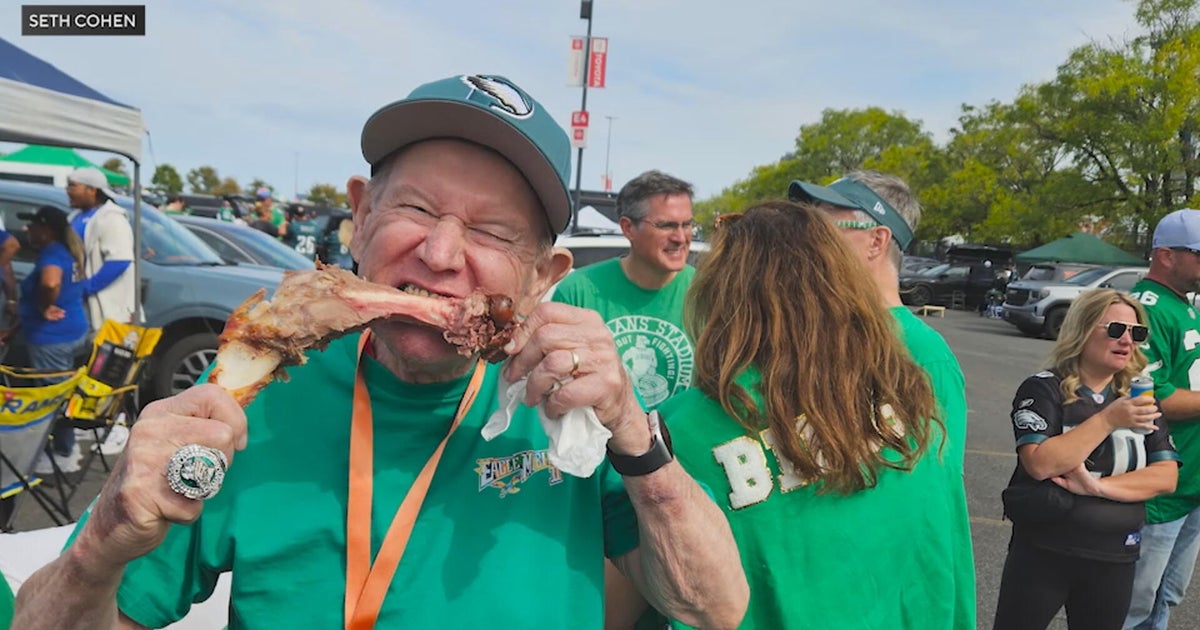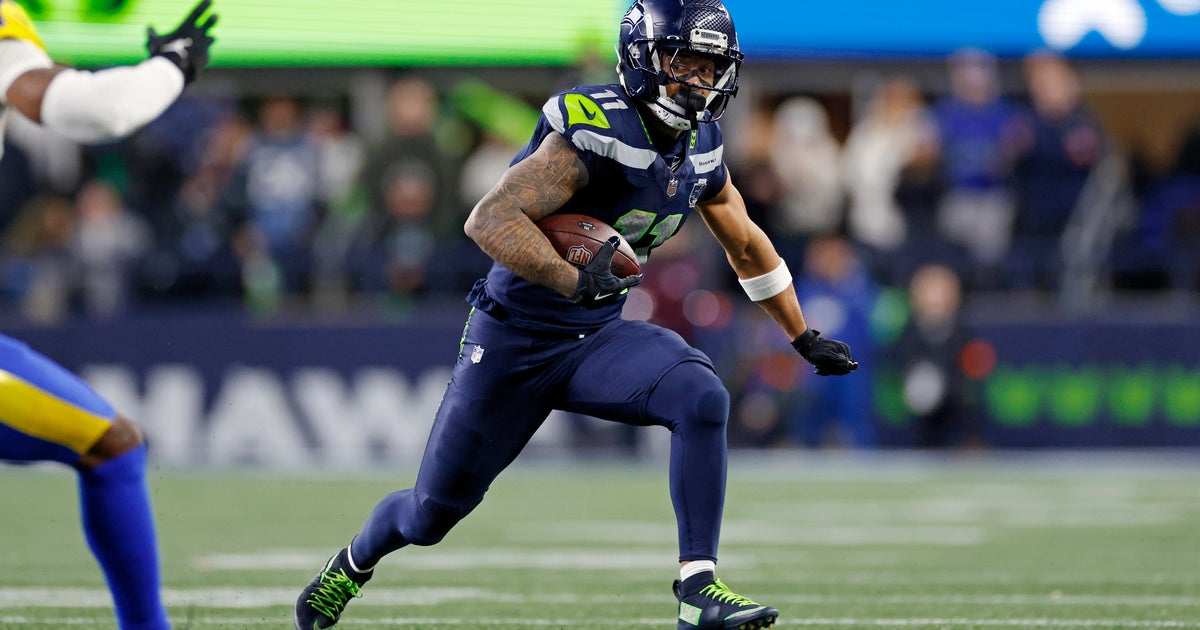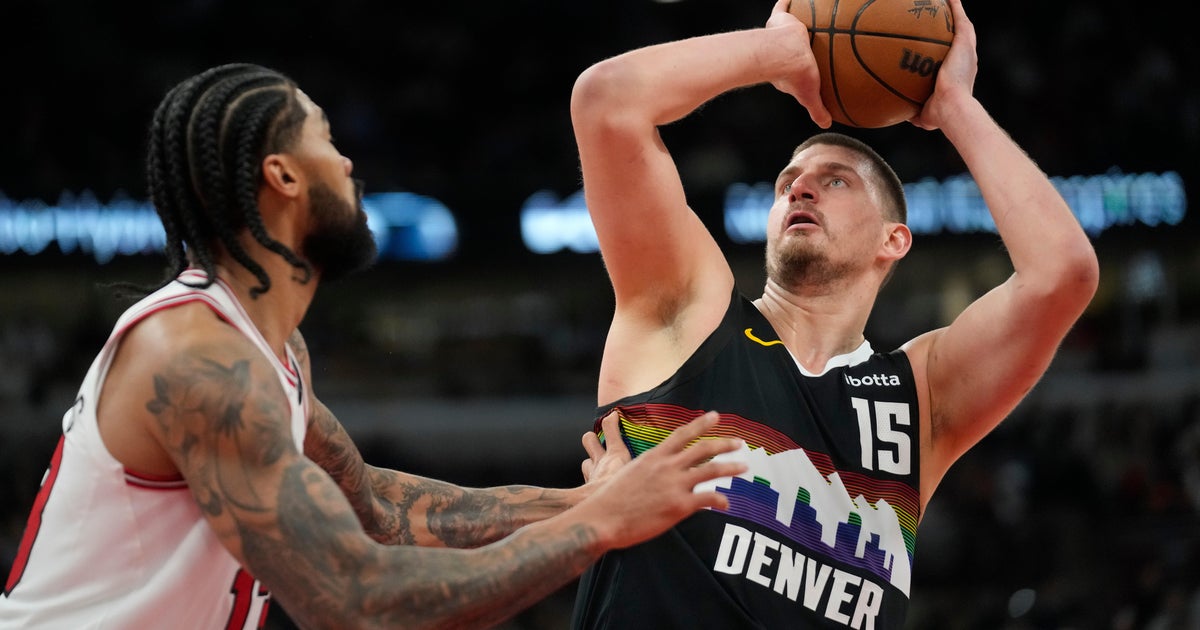Streak Ends; Shoulder Injury Stops Brett Favre
DETROIT (AP) -- Every Sunday he was there, starting on Sept. 27, 1992. Freezing rain, sleet, blowing snow. Nothing stopped Brett Favre.
Through separated shoulders, concussions and sprained knees, broken thumbs, torn biceps and twisted ankles, he played.
He began as the fresh-faced hero of the Cheeseheads, then became their Super Bowl champion and MVP, until the Green Bay Packers wearied of his on-and-off retirement and cut him loose. He has worn two different uniforms since then -- Jets and now Vikings -- and he's had surgery after the last two seasons.
Still, he's been there, on the field, for every game.
Until now.
A stretch of 297 straight starts, 321 counting playoffs, ended Monday because of a shoulder injury that not even the indestructible one could overcome. It goes down as one of the most incredible streaks in all of sports -- one that began back when Peyton Manning was in high school, when Steve Young was the league's best quarterback and when only the most die-hard of fans had ever heard of the second-year quarterback from Southern Mississippi.
"Ahhh, I feel bad for him," said Vikings season-ticket holder JoAnn Brown, who drove 12 hours to see the game against the New York Giants in Detroit, where it was moved after the Metrodome roof collapsed from heavy snow Sunday. "I wish he could've just got out there for the first play and just tossed the ball once to keep the streak."
It's uncertain if Favre will play again in this, his third comeback season from a brief retirement.
For 18-plus seasons, with the game and the position he plays getting more dangerous by the year, Favre stayed out there. Every week. Injuries couldn't slow him; neither could a broken heart. He played one game in 2003 after the sudden death of his father and again the next year after his wife, Deanna, was diagnosed with breast cancer.
The toll it has taken has shown, and not only through the growing palette of gray beneath the 41-year-old quarterback's helmet.
Passes that once found the hands of receivers were getting picked off more and more. Seasons that ended at the Super Bowl were coming up an agonizing game or two short -- sometimes ending, literally, with an interception, as they did last season in Minnesota and in 2008 with Green Bay, both in the NFC championship game.
Meanwhile, a body that could bounce back from almost any beating was taking longer to shake off the blows. This week, he couldn't heal in time to beat the clock.
Regardless, the man known as much for his skill as his stubbornness, as much for his greatness as his grit, will always have his special place in history.
He'll be right alongside Cal Ripken, perhaps the ultimate modern-day sports iron man, who played 2,632 straight games for the Baltimore Orioles, a record that spanned 17 seasons -- one fewer than Favre's. But Ripken, of course, never had a 270-pound opponent stick a helmet in his ribs from the blind side.
"Brett has had an incredible career and his consecutive games streak is remarkable," Ripken said in a statement through his spokesman, John Maroon. "As a football fan I cannot fathom his accomplishment and I appreciate his dedication to and passion for the game. He is a true gamer and has provided us all with a lot of wonderful memories."
Ricky Rudd started 788 straight races in NASCAR. A.C. Green played in a record 1,192 straight NBA games with four teams over 15 seasons. Doug Jarvis played in 964 straight hockey games for the Canadiens, Capitals and Whalers.
Then there are the wondrous streaks that have little to do with longevity: Joe DiMaggio's 56-game hitting streak and Byron Nelson's 11 straight PGA Tour wins come to mind. Favre's "297" belongs on that list -- maybe at the top.
"There's no comparison in my mind," said Titans quarterback Kerry Collins, a 16-year veteran himself. "Just the physical abuse a starting quarterback takes over the course of a season and the course of a career is just beyond comprehension."
Before Favre, the record for most consecutive games started by a quarterback belonged to Ron Jaworski, set in 1984. Favre surpassed that record in 1999 and doubled it seven years later.
"I think about my streak of 116 games, and all the injuries I had to play through," Jaworski said. "To go to 297, with the players now, bigger and stronger and faster, what he's had to play through during that streak has been just unfathomable."
Manning holds the second-longest streak at 205 games. He would need to keep it going for another 5 1/2 years to surpass Favre.
"There's no human explanation for it," Collins said. "It'll never be done again."
After Favre and Manning, the next two longest current streaks belong to Manning's brother Eli (100) and Philip Rivers (77).
Since Favre's streak began, 239 other quarterbacks have started in the NFL, according to STATS LLC. That's an average of 7.4 per team -- if you count all 32 teams; back when Favre's streak started, there were only 28.
His longevity, to say nothing of his skill, has put him at the top of the NFL record book for almost all of the most highly regarded passing stats: 71,775 yards, 507 touchdowns, 6,295 completions. He also threw 335 interceptions during the regular season, the most of any quarterback.
Still, his consecutive starts are what stand out.
"It may be the most impressive streak in all of team sports in terms of durability and making it to game day," said Jaguars coach Jack Del Rio, who was playing linebacker for the Vikings when Favre's streak began. "This game, the physical toll it can take on you, and to do that over time is something else."
Indeed, almost every great quarterback -- from Unitas to Elway to Marino to Montana -- has come down with the flu, or taken a big hit, or broken a bone, or dinged a thumb or sprained a knee and had to sit out a game. Or more. John Elway missed four starts in his final season, 1998, when the Broncos won their second straight Super Bowl and sent the old QB out on a winning note.
He didn't want to retire, he said, because he still loved Sundays. But it was the Mondays and Tuesdays and Wednesdays he couldn't deal with anymore. His body simply didn't recover fast enough and the three-hour high of playing was no longer worth the week-long agony of recovering and getting ready all over again.
Favre is well past that point, too, which could very well explain his dramatic, repetitive and, yes, annoying late-career habit of retiring and unretiring, switching teams, dragging out his offseasons of indecision to the point of distraction for everyone involved.
But he kept coming back.
It would take more than two hands to count the number of times he should have sat but didn't.
In his Green Bay days alone, there were no fewer than nine times when he was hurt so badly one week that his availability for the next game was in question. But he played, and on almost all occasions, he did more than merely show up.
He threw for 402 yards in a 1993 game against Chicago with a severely bruised left thigh.
He threw five touchdowns in a 1995 game against Chicago with an ankle taped so heavily he could barely move.
He threw for 288 yards in a 1999 game against Detroit with a lacerated right thumb.
After his first "unretirement," Favre played every game of the 2008 season for the New York Jets, then revealed he had played the last several weeks with a torn biceps.
Just last month in beating the Cardinals, Favre threw for a career-best 446 yards in rallying the Vikings from a 14-point deficit with less than five minutes left in regulation.
His signature game might have come in 2003, when he threw for 399 yards and four TDs in a Monday night win at Oakland -- the day after his father died of a heart attack.
"I knew that my dad would have wanted me to play," Favre explained that night.
Ripken can relate to that work ethic.
"My dad always taught me that as a ballplayer, you have a responsibility to come to the ballpark every day prepared to play," he said, "and if the manager decides you can help him win that day you will be in the lineup."
For more than 18 years, Favre was in that lineup.
His streak ends short of the NFL record of consecutive games played -- 352, by Jeff Feagles, a punter.
"I look at what I did, and it was pretty remarkable in its own right, just to play as long as I did and never miss a game," Feagles said. "But for him, at the quarterback position, we all know he gets hit a lot."
Indeed, some might say Favre has treated his body with the same respect as he does the football, throwing it willy-nilly into impossible situations, unconcerned about consequences.
For most of his career, the gambling paid off. Favre won three MVPs, made two trips to the Super Bowl and won one. He holds the record for wins by a quarterback with 186.
But the consecutive-starts streak is the kind of record that will take more than good teammates and mere talent to break. It's a testament to Favre's courage, persistence and toughness -- and maybe a little bit of luck, too.
"I think there's a lot of factors that probably go into it, but you can't downplay how much hard work and how much he gutted through to keep it alive," said Patrick Mannelly, the long snapper for the Bears, who wouldn't dare compare his 134-game string of consecutive games to what Favre has accomplished.
The streak was a tribute to Favre's insistence on staying true to the code in football that no matter what happens today, there's always next week.
And then there wasn't.
By EDDIE PELLS
AP National Writer
(© Copyright 2010 The Associated Press. All Rights Reserved. This material may not be published, broadcast, rewritten or redistributed.)
